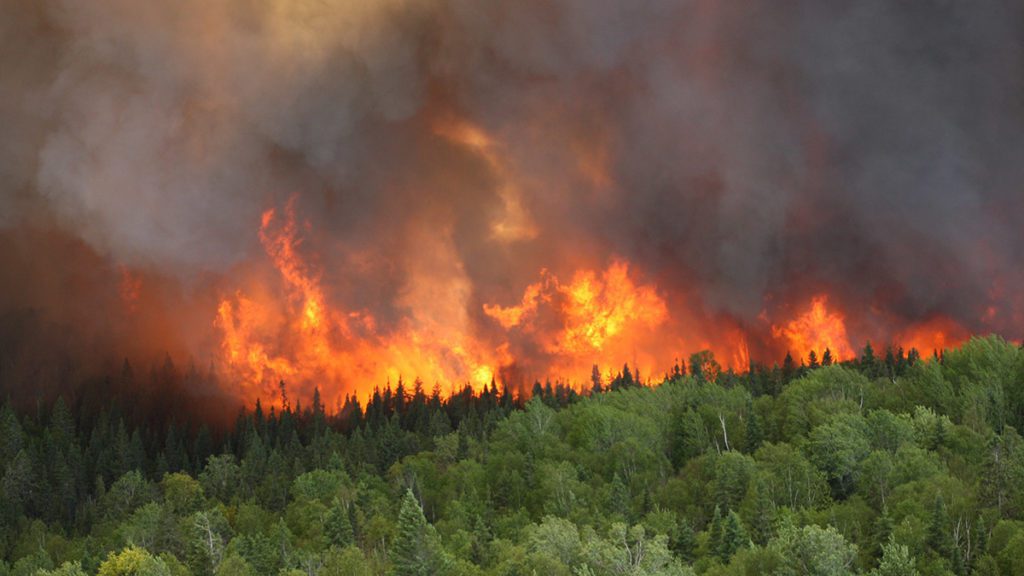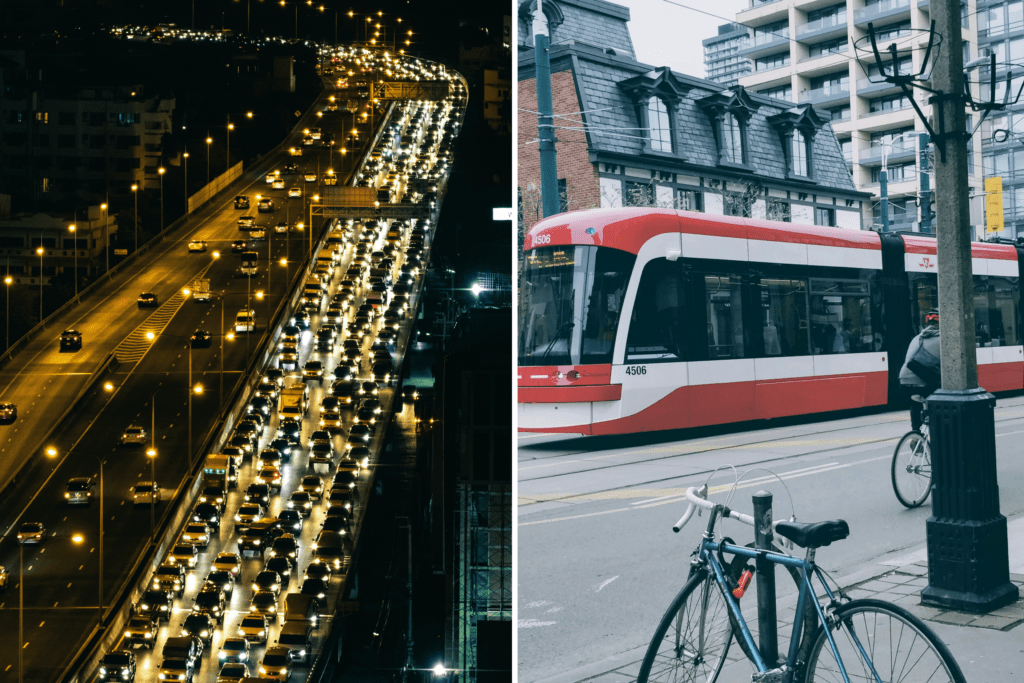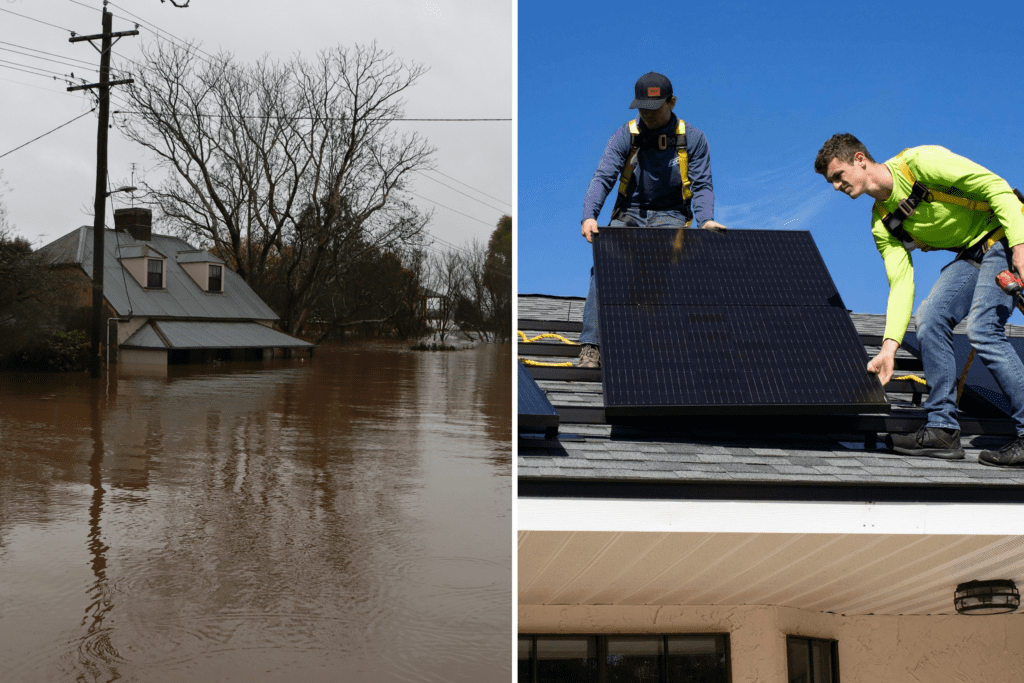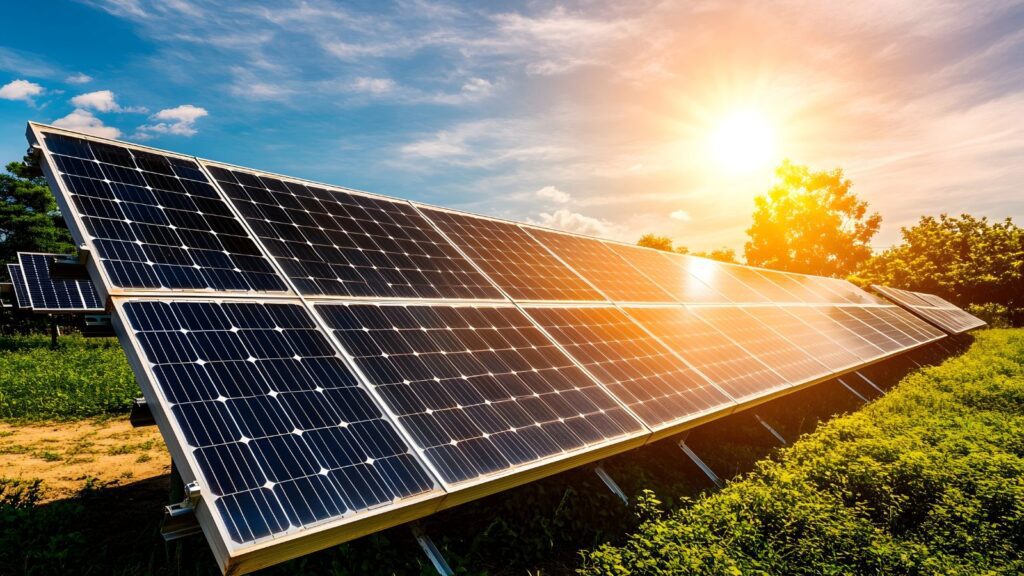As a recent graduate, there were countless times as a student when I would lay awake at night stressed about if I was going to make it to my next paycheck. For many people, grocery trips take twice as long as customers agonize about what they can afford to include in their basket. Some families are having to make difficult trade-offs about what costs they are going to prioritize, perhaps deciding between car repairs or a new roof. The cost of living crisis can feel overwhelming and all consuming at times, as prices somehow keep continuing to go up.
While the cost of living crisis rages on, the climate crisis does too. In 2023, Canada experienced its worst ever wildfire season, with 167,000 people forced to evacuate their homes under 211 federal evacuation orders. We are at a crossroads between a more affordable and climate safe future, and one that entrenches our reliance on dirty fossil fuels, increases the rift between the highest and lowest earners and puts profit over people.

We all want a future that is affordable and safe for all, where we don’t have to decide between which basic needs to meet. Fixing the cost of living crisis does not need to come at the expense of fixing climate change. A cleaner, green future is a more affordable future.
Whether we experience an affordable and safe future, or one of spiralling costs and climate impacts, depends most on one thing: government action. The power to create a better future lies with our elected representatives. While the federal and some provincial governments made key announcements in 2023 that will support climate action and improve the cost of living, they have more to do.
A climate-safer future is already becoming more affordable, and this trend will continue with government support. The cost of electricity generated from solar panels fell by 89 per cent between 2010-2022. Both onshore wind and solar are less than half as expensive as the cheapest fossil-fired electricity sources. In Ontario, homeowners can save $10,320 in their lifetimes by switching to a climate-safe electric heat pump when their gas furnace reaches the end of life. Affordable and climate safe options are already here, but work still needs to be done to make them available to people of all income levels.
Let’s paint a picture of the future we could have if the federal and provincial governments support climate action, and compare it to ,one that may prevail if that status quo of putting profit over people continues. We will walk you through three aspects of your life, and describe one future with climate action, and one without, to see which one will be more affordable.
Your home: will it become more affordable or more expensive?
A Future Without Climate Action:
Heat-related deaths in homes continue to rise as hot weather events become more common, adding to the more than 600 heat-related deaths that occurred from the 2021 British Columbia heat dome. New building codes and rebates for clean cooling measures in homes are scrapped, so low-income households can’t afford to cool their homes.
In the winter, homes are drafty, windows leak in cold air, and heating bills are skyrocketing. Without incentives to replace gas stoves with clean induction stoves, home cooking fills the air with carcinogenic pollutants. Oil and gas prices continue to be extremely volatile, so it is hard for families to predict their home heating costs. Low-income families and renters are hit the hardest as they haven’t had access to government support to access cheaper renewable energy or heat pumps, which dramatically cut home heating and cooling costs. Fossil fuel price volatilities continue year-round, and energy prices are unaffordable.
Runaway climate change results in an increase in extreme weather events. Millions of households in Canada are denied insurance coverage against floods and wildfires, leaving them without any financial backup in emergencies. The federal government and individual families have to foot the bill for extreme weather
A Future With Government Climate Action:
Better windows, more insulation, and switching to an electric heat pump for heating (and cooling) will make homes and apartments much cheaper to heat and cool and more comfortable to live in. Governments have provided abundant support, especially for lower-income people, to adapt their homes by providing rebates and no interest loans for heat pumps and home retrofitting. New building codes ensure that all new homes are built to high energy efficiency standards and are fitted with heat pumps instead of gas hookups so they are comfortable and affordable for residents. New homes also use induction stoves which drastically improve air quality, and rely on clean energy.
Thanks to the government leveraging public and private investments in the energy transition, renewable energy, such as solar and wind, produces electricity much more cheaply than gas turbines, coal plants, and oil burners.
Action on climate change has meant that extreme weather events remain once-in-a-lifetime catastrophes. Families can live safely in their homes without the fear of going without home insurance.
Mobility and travel – will getting around your neighbourhood become more or less affordable?

A future without climate action:
Car-domination continues as the federal government scraps its clean vehicle regulations, leading to a huge increase of polluting gas vehicles on the streets. Air quality continues to worsen, and when people want to walk or bike they are met with a lack of safe routes and dangerously high air pollution levels.
A future with government climate action:
Streets have space for people to walk and bike. Public transit is convenient, affordable and reliable. Green space is abundant as the experiences of community members have been prioritized over parking. Where there are vehicles, they are electric so air quality is improved. The switch to electric vehicles, thanks to the 2023 Electric Vehicle Availability Standard, has saved drivers around $30,000 over the life of their vehicle. New support for lower-income people and new lower cost models has made the switch possible for all income levels, though increased public transit has meant that fewer people need their own vehicles.
Costs of goods and services – will you be better or worse off?

A future without climate action:
The government scrapped the carbon tax, so polluters are continuing to get away without paying their fair share. Volatile fossil fuel prices continue to raise the costs of transporting goods and services, making everything more expensive. These volatile and surging prices are mainly caused by geopolitical factors and profiteering by oil and gas corporations, which are driving inflation.
Global oil prices surge in the aftermath of geopolitical uncertainty, such as war. Of the $72 billion of inflation in 2022, $18 billion ended up in the oil and gas sector, meaning 25 cents of every dollar of inflation in 2022 went to higher oil, gas and mining profits. Profiteering and global tensions continue to fluctuate global fossil fuel prices.
A future with government climate action:
The government’s progressive carbon pricing is working, with the biggest polluters reducing their greenhouse gas emissions , while returning more money to 80 per cent of Canadians through the ‘Climate Incentive Action Payment’. Most Canadians are therefore making money through the carbon tax while it holds big polluters to account. A windfall tax on profits has taken billions of dollars away from damaging industries and put that money into communities. Food price inflation is brought under control as climate action stabilizes the global food supply chain.
A cleaner and more affordable future is possible
For so many people, it feels impossible to care about climate change while living paycheck to paycheck. Unaffordability can be incredibly stressful. However, the good news is that addressing climate change means having a more affordable future. Government action can ensure that we make this transition, while prioritizing the needs of low-income communities first. Whatever the fossil fuel industry says, a green future is an affordable future.
Take action – tell the federal government to stop Big Oil from polluting our climate!










